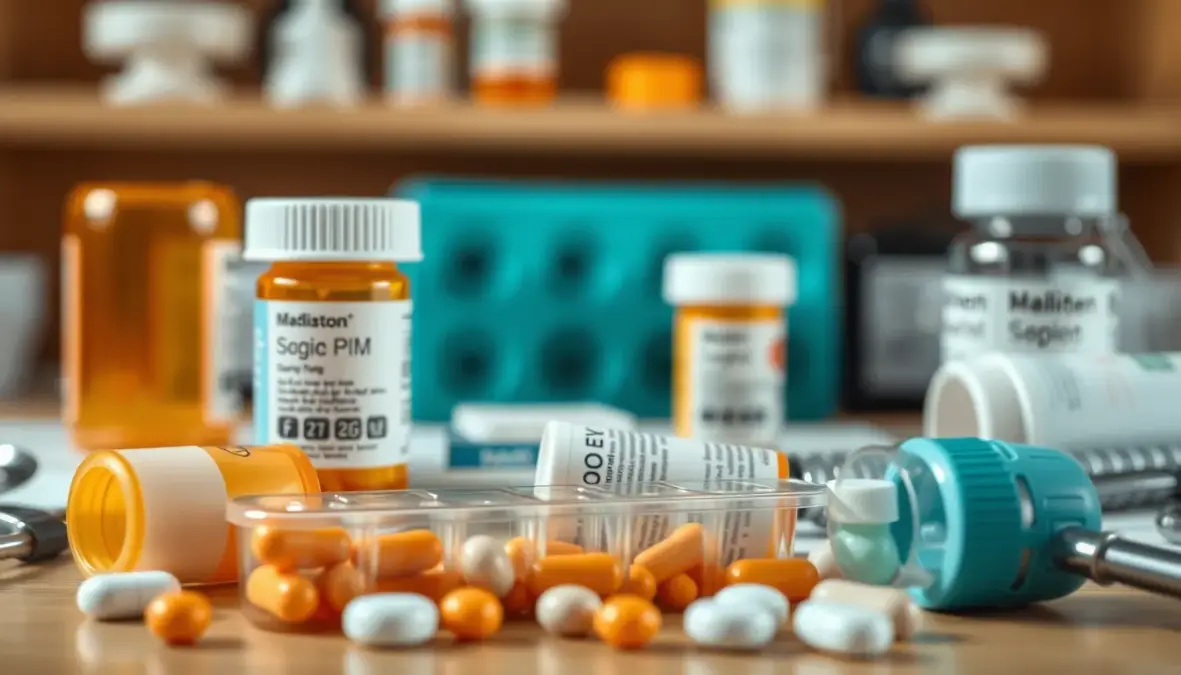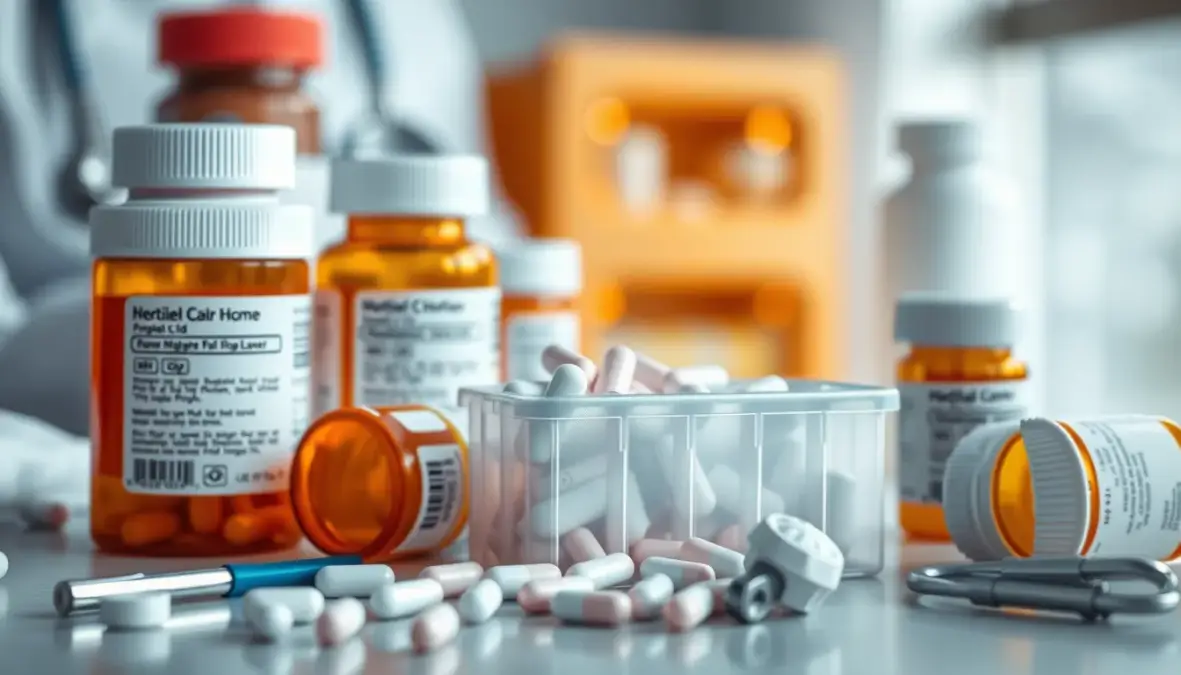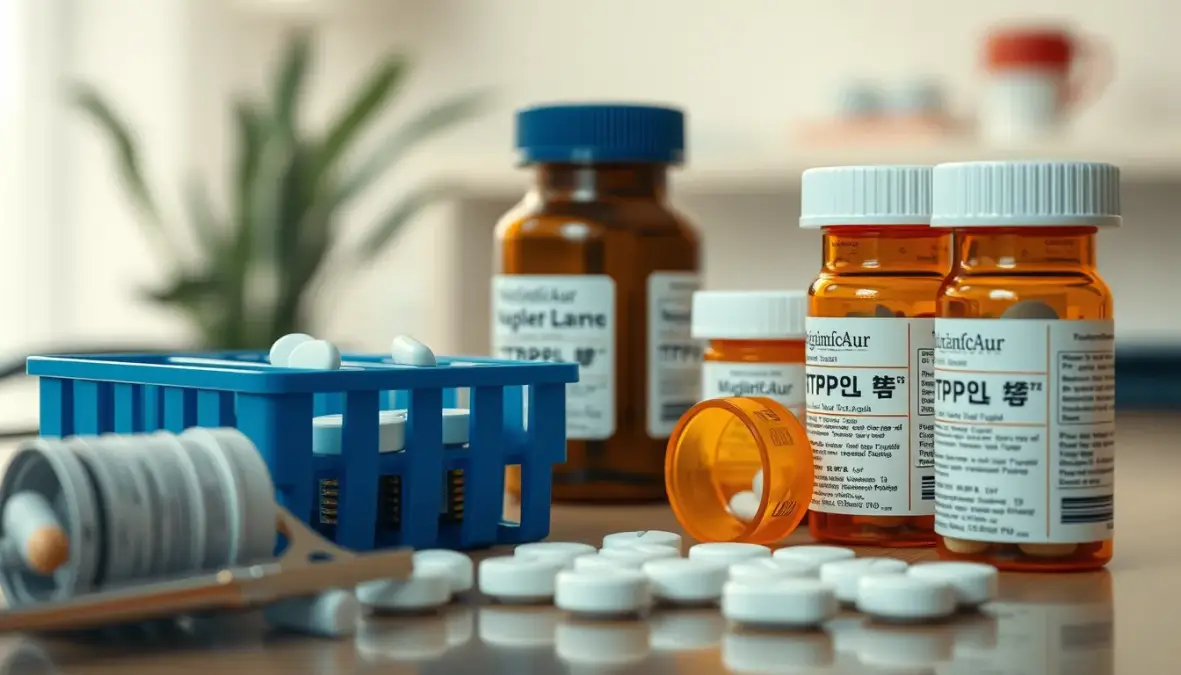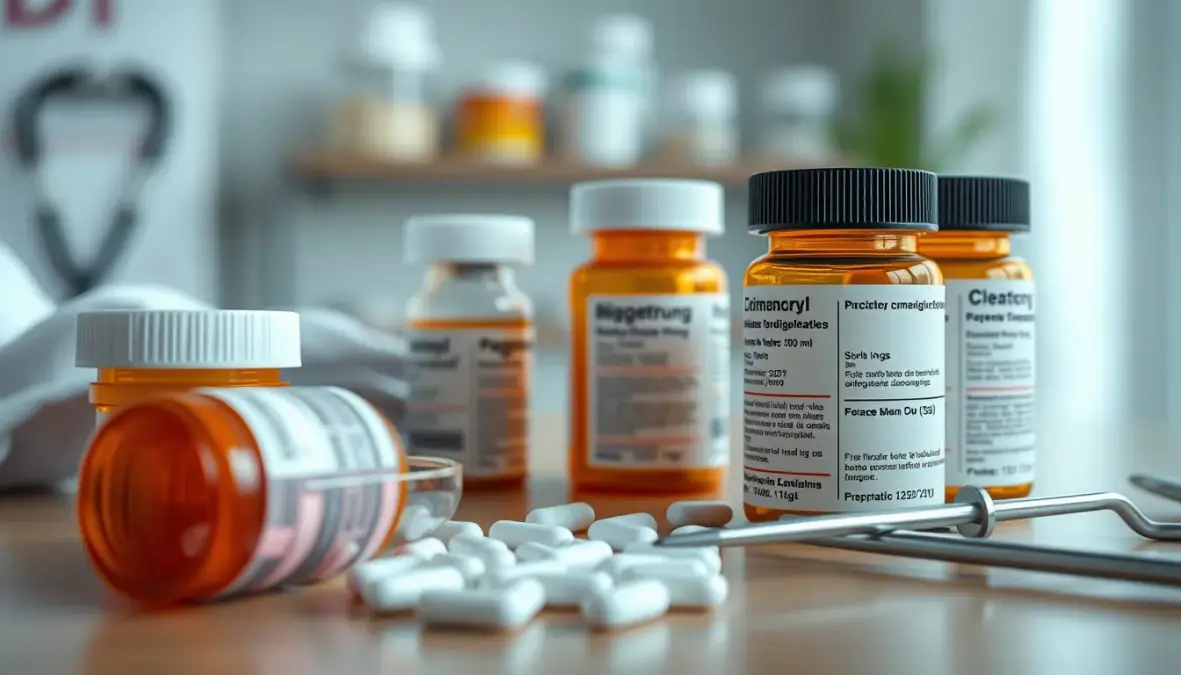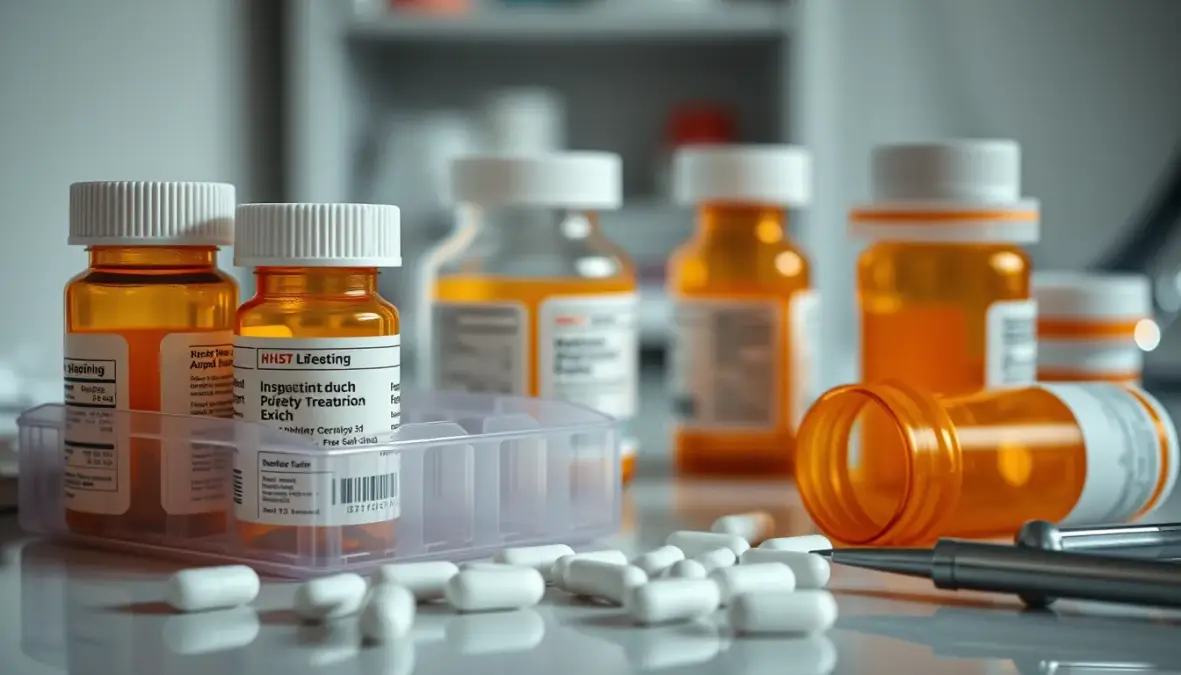Stress is an integral part of our modern lives. Many studies show that The effect of stress on medications can be significant and affect their effectiveness. In this article, we at Pharma Care will explain the complex relationship between mental stress and how the body responds to medications, and offer ways to deal with the phenomenon. Understanding the connection between Mental stress and medications Essential for anyone who takes medication regularly and deals with stressful situations.
What is mental stress and its effect on the body?
Stress is a physiological and psychological response to challenging or threatening situations. When we experience stress, the body releases hormones such as cortisol and adrenaline, which trigger the “fight or flight” response. This response, which was essential for the survival of our ancestors, can affect many systems in the body, including:
- Digestive system
- The immune system
- Cardiovascular system
- Nervous system
- Metabolism and biochemical processes
These physiological changes can directly affect how the body processes and responds to medications, thereby altering the Effectiveness of drugs under pressure.
The mechanisms through which psychological stress affects the effectiveness of drugs
Changes in drug metabolism
Stress affects the activity of liver enzymes responsible for breaking down drugs (the cytochrome P450 system). As a result, some drugs may break down faster or slower than normal, which changes their concentration in the blood and the duration of their effect.
Changes in digestive absorption
During stressful situations, blood flow to the digestive system may change, as may intestinal motility and the rate of gastric emptying. These changes can affect the absorption of oral medications and alter the The effect of stress on medications These.
Changes in immune system function
Chronic stress suppresses the immune system, which can affect the effectiveness of anti-inflammatory and antibiotic drugs, and worsen autoimmune diseases.
Effect on hormone levels
Stress hormones can conflict with the action of medications that affect the hormone system, such as medications to treat diabetes, thyroid problems, or hormonal contraceptives.
Drug groups particularly affected by mental stress
| Drug group | The effect of mental stress | Recommendations |
|---|---|---|
| Medications to treat high blood pressure | Mental stress raises blood pressure and may reduce the effectiveness of medications. | Frequent monitoring of blood pressure, incorporating relaxation techniques |
| Antidepressants and anxiety medications | Ongoing stress may reduce the effectiveness of medications and worsen symptoms. | Combined treatment (medication and psychological therapy), mindfulness practice |
| Diabetes medications | Stress raises blood sugar levels and makes it difficult to balance | Frequent monitoring of sugar levels, practicing stress reduction techniques |
| Pain and inflammation medications | Stress may increase the sensation of pain and reduce the effectiveness of painkillers. | Combining relaxation techniques and moderate exercise |
Studies on the relationship between mental stress and medication effectiveness
Recent studies highlight the significant impact of Mental stress and medications This is about this:
- A study published in the Journal of Pharmacology showed that mental stress reduced the effectiveness of antidepressants by about 20% in patients.
- Another study found that asthma patients in stressful situations responded less well to bronchodilator medications.
- Studies in the field of oncology indicate that mental stress may reduce the effectiveness of certain chemotherapy treatments.
Ways to deal with the impact of mental stress on the effectiveness of medications
Stress reduction techniques
- Meditation and mindfulness – Daily practice of 10-15 minutes can significantly reduce stress levels.
- Regular physical activity – Even walking for 30 minutes a day improves your ability to cope with stress.
- Quality sleep – Ensuring 7-8 hours of sleep per night is essential for regulating stress hormones.
- Social support – Talking to friends, family or professionals can reduce mental stress.
- Breathing techniques – Deep, slow breathing activates the parasympathetic nervous system and reduces stress.
Adjusting drug treatment in stressful situations
In cases of Effectiveness of drugs under pressure Reduced, adjustments in drug therapy may be required:
- Changing the dosage of the drug
- Changing the times you take the medicine
- Adding a complementary medicine
- Switching to another medication that is less affected by stress
It is important to remember: Any changes in medication must be made only under the guidance of the treating physician!
Communication with the medical team regarding stress and medications
It's important to share your stress levels with your doctor, especially if you take medication regularly. Here are some points to discuss with your doctor:
- Changes in the levels of mental stress you experience
- Changes in response to medications during periods of increased stress
- New or increased side effects
- Difficulties in responding to medication due to mental stress
Populations at increased risk for the impact of psychological stress on the effectiveness of medications
There are population groups for whom The effect of stress on medications May be particularly significant:
- Elderly – Due to changes in metabolism and weakening of body systems
- Chronic patients – Especially patients with heart disease, diabetes, asthma and autoimmune diseases
- People with mental disorders – Especially anxiety and depression
- People taking several medications at the same time – Due to the complex interactions
Frequently Asked Questions
Can mental stress cause new side effects from medications?
Yes, stress can change the way the body responds to medications, and can therefore increase existing side effects or even cause new ones to appear. This is due to changes in metabolism and various body systems under stress.
Should you stop taking medication during periods of increased mental stress?
Under no circumstances should you stop taking medication on your own, even during times of stress. If you are concerned about the effect of stress on the effectiveness of your medication, consult your doctor who can adjust your treatment if necessary.
Are there any medications that are not affected by mental stress?
Almost all medications may be affected to some extent by stress, but some medications are less affected. Your doctor can adjust your medication based on the levels of stress you are experiencing.
How do I know if mental stress is affecting the medications I take?
Signs that stress is affecting the effectiveness of medications can include: a change in the control of symptoms of the disease, the appearance of new side effects or worsening of existing symptoms, and changes in laboratory test values. It is important to report any such changes to your doctor.
Can nutritional supplements help reduce the impact of stress on medications?
There are certain supplements that may help reduce stress, such as magnesium, vitamin B complex, and herbal supplements like valerian. However, it is important to consult your doctor before taking any supplements, especially if you are taking medication, as there can be interactions between supplements and medications.
Medical Disclaimer: The information in this article is for informational purposes only and is not a substitute for professional medical advice. Do not make any changes to your medication without consulting a qualified physician. At Pharma Care, we always recommend that you consult your physician regarding any questions or concerns you may have regarding your medical condition or the medication you are receiving.

פרופ’ אלון גרין הוא מומחה לפסיכיאטריה קלינית ומחקר תרופתי, עם התמחות בפיתוח והתאמת תרופות מרשם למגוון מצבים נוירו-פסיכיאטריים. בעל ניסיון של למעלה מ־35 שנה בעבודה קלינית ואקדמית, וכיהן כמרצה ופרופסור אורח במספר אוניברסיטאות מובילות בארץ ובחו”ל. עמד בראש יחידות מחקר וטיפול בבתי חולים ציבוריים ומרכזים רפואיים מתקדמים. תחומי עיסוקו כוללים קשב וריכוז (ADHD), הפרעות חרדה והרגעה, דיכאון קליני והפרעות מצב רוח, וכן טיפולים תרופתיים תומכי דיאטה ואיזון מטבולי. משלב גישות מבוססות ראיות עם חדשנות פרמקולוגית, ופרסם עשרות מאמרים מקצועיים בכתבי עת מדעיים, תוך תרומה משמעותית להבנת מנגנוני פעולה של תרופות והשפעתן הקלינית.

